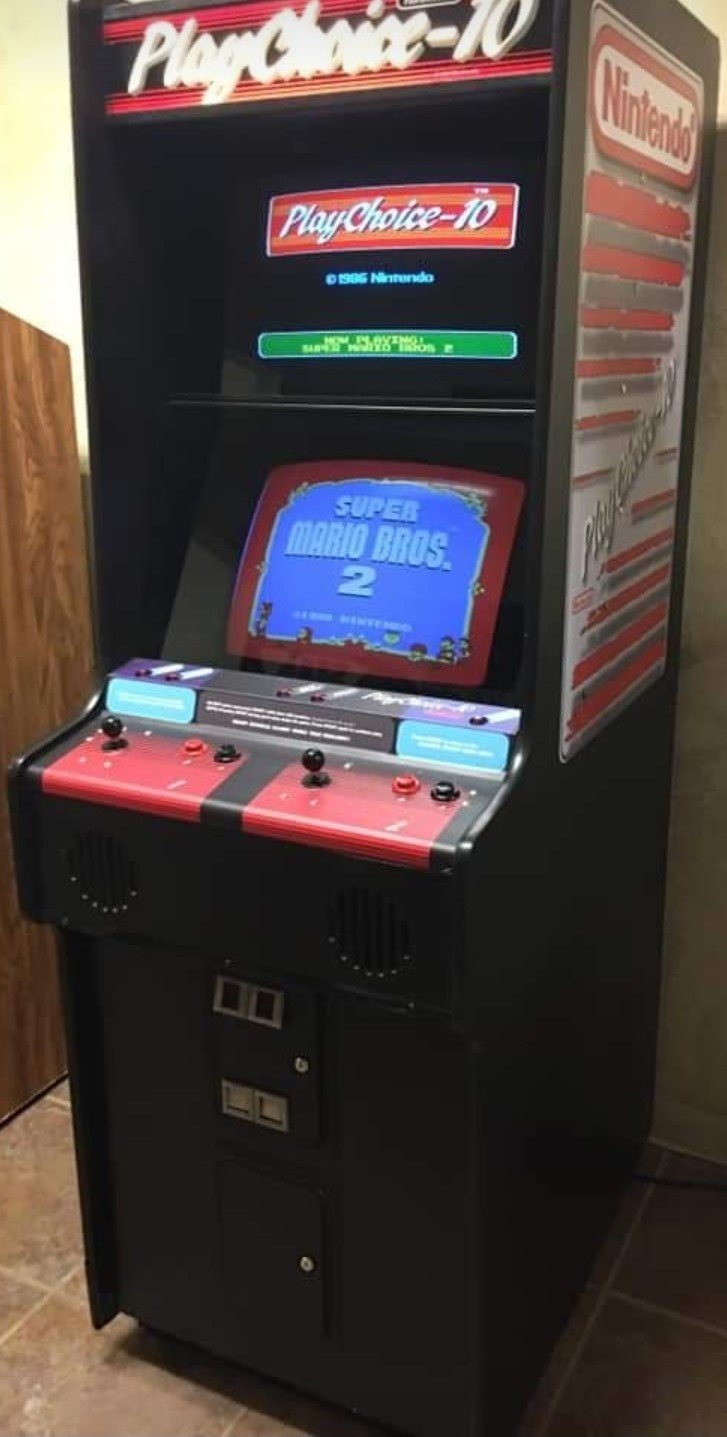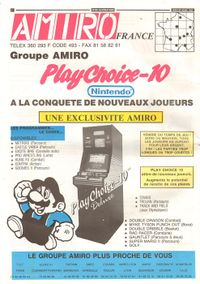Nintendo PlayChoice-10: Difference between revisions
m (Text replacement - "{{[Ss]ystem-infobox" to "{{system infobox") |
|||
| Line 1: | Line 1: | ||
{{more images}} | {{more images}} | ||
{{ | {{system infobox | ||
|image=[[File:Nintendo Playchoice-10.jpeg]] | |image=[[File:Nintendo Playchoice-10.jpeg]] | ||
|released=August 1986<ref>[https://archive.org/details/cashbox50unse_5/page/40 Cashbox 1986-08-30]</ref><ref>[https://archive.org/details/cashbox50unse_23/page/n53 Cashbox 1987-01-17]</ref> | |released=August 1986<ref>[https://archive.org/details/cashbox50unse_5/page/40 Cashbox 1986-08-30]</ref><ref>[https://archive.org/details/cashbox50unse_23/page/n53 Cashbox 1987-01-17]</ref> | ||
Revision as of 18:33, April 20, 2022
| Nintendo PlayChoice-10 | |
|---|---|

| |
| Discontinued | Mid 1992[?] |
| Predecessor | VS. System |
| Successor | Nintendo Super System |
The Nintendo PlayChoice-10 is an arcade machine that consists of ten different games that had previously only been available on the Nintendo Entertainment System (NES). It was one of the last arcade machines made by Nintendo before they announced they would stop making coin-op equipment in 1992.[1][2] The PlayChoice-10 was never released in Japan.
Description and history
Because the home gaming consoles were nearing the popularity of arcade machines, video game companies (e.g. Sega, Nintendo) decided to capitalize on this trend by making stand up arcade machines out of their existing console systems. Nintendo, being the industry leader at the time, was especially successful with this concept. Nintendo packed its most popular games (e.g. Duck Hunt, Excitebike) into a machine case and called it PlayChoice-10.
The machine was compatible with the NES, but it was actually quite different. Normal NES cartridges could not be used; rather, the PlayChoice used special expansion cards containing usually unmodified NES games along with extra 8KB ROM to display hints. Due to the fact that the PlayChoice-10 output RGB video used a slightly different palette, games did not look exactly the same as they did on the NES.
List of Mario games
- Dr. Mario (1990)
- Golf (1986)
- Mario Bros. (1986)
- Mario's Open Golf (1991)
- Super Mario Bros. (1986)
- Super Mario Bros. 2 (1988)
- Super Mario Bros. 3 (1989)
